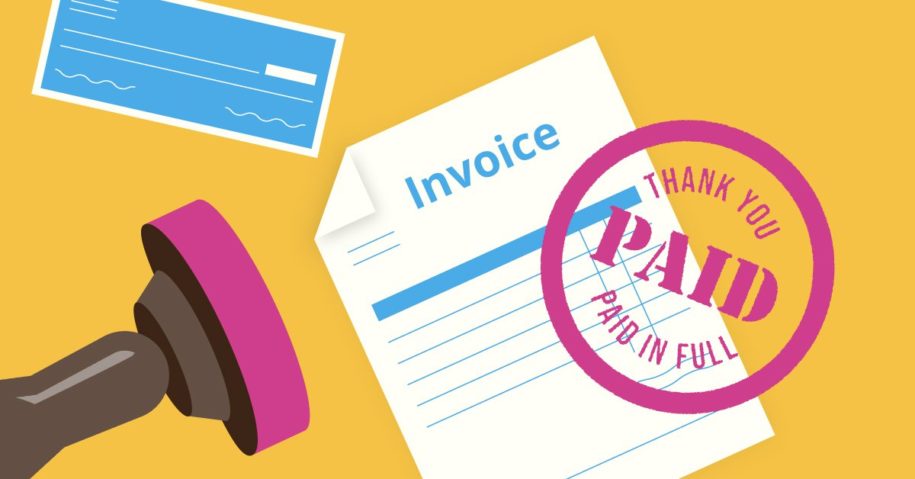If you work in accounts receivable, you're in a position where you'll be responsible for calling clients about outstanding invoices and collecting money. This can be a stressful job for some personality types, while others will head into the office every day and happily do their work without issue. There are many positions within the world of accounts receivable, which means that those who are in the profession will have a wide salary range, depending on whether they are entry-level, full-time, what their work experience is like, and where they live.
In this guide, we'll answer all of your burning questions about what it's like to work in accounts receivable.
What is Accounts Receivable?

The job description of someone working in accounts receivable will vary depending on their specific role.
The term "accounts receivable" itself refers to money that is owed to a business for the purchase of products or services but has not yet been paid. These debts are listed on a balance sheet for the company's financial records.
As for different positions within the world of accounts receivable, here are the main ones:
Accounts Receivable Clerks
The clerk, also known as an accounts receivable specialist, is the most entry-level position. This role requires the least education and work experience so it’s a great one if you’d like to get started early on but don’t have the experience or credentials yet.
These employees largely do the work of preparing, posting, verifying, and recording payments, creating invoices and financial reports, and maintaining files.
Accounts Receivable Analyst
An accounts receivable analyst's area of expertise is in compliance. Analysts are responsible for ensuring that accounts receivable best practices are being followed. They usually report to an accounts receivable manager.
Accounts Receivable Supervisor
This role oversees a small group of staff but also has duties much like a clerk or specialist. A supervisor will generally process invoices, update records, and maintain receipts, in addition to providing oversight to small teams or departments.
Accounts Receivable Manager
Managers oversee the accounts receivable department, monitor processing, and ensure that collection happens in a timely manner.
What's an Accounting Clerk?

You may have heard the term, "accounting clerk," read the job description, and thought, "This sounds just like an accounts receivable clerk!" Yes, the two are similar and many duties will overlap, but they have a few key differences.
Accounting clerks have a far wider range of accounting tasks they may be responsible for. They may work in various departments, from accounts receivable to accounts payable. Their duties can be as high level as updating financial reports or as basic as retrieving mail.
Accounts Receivable vs. Accounts Payable

Accounts receivable and accounts payable are direct opposites. For Accounts Receivable, you will be responsible for getting payments from customers, clients, and vendors. You will send out invoices and track cash flow.
Accounts payable employees are not just bookkeepers, either. Accounts payable involves sending out payments for incoming invoices. When invoices come in, they're tracked, recorded, approved (or rejected), and then payment is sent. This can still be a stressful job.
Education Requirements

Starting positions in accounts receivable usually only require a high school diploma or G.E.D. However, some businesses will desire higher education, such as a bachelor's degree. They may also require candidates to have a CPA license and a minimum of two years of experience as a professional accountant.
Certifications
To increase the chance of getting hired, many hopeful accounts receivable clerks, managers, and specialists will seek certifications such as the Institute of Finance and Management's (IOFM) Accounts Receivables Specialist (ARS) or Accounts Receivables Manager (ARM) designations.
These certifications show dedication to accuracy and compliance, as well as an ability to adapt to new systems and processes.
Licenses
A Certified Public Accountant (CPA) license may also be a prerequisite for employment. The American Institute of Certified Public Accountants (AICPA) is the top institution for accounting in the U.S., and their license carries weight with potential employers.
Training
While there are basics that every accounts receivable employee will need to know — including how to keep accurate records and how to deal with late payments — most training is job-specific. Because each company has its own methodology and billing/invoicing system, there are certain details you won't know until you're actually working in their accounts receivable department.
There are training courses you can take to improve your abilities, however, and mentoring with older, more experienced accounts receivable specialists will help you learn your particular role. As you advance in your abilities, you can work toward promotions from a clerk job to being a manager or analyst.
Other Crucial Skills

You can break your way into the role by getting all the right education, training, and certifications, but at the end of the day, you'll need to have the skillset to have a long career. You'll also need strong communication skills.
Distilling complex financial data into a common language helps your customers and clients understand their bills, allowing your company to get paid faster.
People in accounts receivable must also be adaptable, especially when the Securities and Exchange Commission (SEC) decides to change some rules. Tax laws change, Generally Accepted Accounting Practices (GAAP) standards will evolve, and you'll need to understand how they impact your job and your company.
It's also essential to have solid technical skills. You'll be working with lots of technology, such as accounting software and various invoicing apps. These skills will help you to troubleshoot problems on your own, which can save you time and hassle.
Finally, accounts receivable jobs require excellent time management. It's easy to get behind and let the stress push work onto the back burner. The better time management skills you have, the less that will happen.
Who Shouldn't Work in Accounts Receivable?

There are personality types that just aren't suited to working in accounts receivable, and that's okay! Not everyone is meant for the job.
Accounts receivable can be highly stressful and if someone isn't prepared for the issues the job can face, they'll experience burnout fast. This isn't to say that someone can't learn the ropes and be incredible at the job, but if it's not what you're suited for, why pursue a career in the field?
Avoid accounts receivable jobs if you:
- Procrastinate: Invoices need to be sent out immediately. Financial records must be updated immediately. Follow-ups must be done. Don't get into this job if you have a tendency to put off difficult tasks.
- Get mad: Being aggressive towards late or non-paying clients isn't the solution. Ironically, your company is less likely to get paid with this strategy. Be professional, be polite, and work with your clients. You'll get better results! Sending a dunning letter before you send a scathing demand letter, for example, is the right way to approach non-payment.
- Are a pushover: While being too aggressive is a turn-off, failing to appropriately seek out clients for payment is the other end of the ineffectual spectrum. There's a point where the excuses won't cut it anymore and the customer needs to pay.
- Don't write things down: Documentation and details are essential. Missing and inaccurate records can take don entire companies if they are hit with an audit.
Average Accounts Receivable Salary

This is the part that you've probably been waiting for! Full-time employment with healthcare in the financial services industry depends on the health of the job market.
With accounting jobs in general increasing at a rate of about 6%, there is good potential for those who are seeking positions. The Bureau of Labor Statistics expects 170,200 openings in accounting and auditing positions each year over the next decade.
The national average for Accounts Receivable salary positions is:
- Accounts Receivable Clerk/Specialist: $36,613
- Accounts Receivable Analyst: $53,665
- Accounts Receivable Supervisor: $66,154
- Accounts Receivable Manager: $89,591
The base salary for someone starting out as a clerk or specialist is usually about $26,000, although that's sometimes lower or higher depending on location and exact duties.
Those in the largest, most populated areas will be in the top percentile of earners, thanks to the cost of living. For example, the average accounts receivable clerk in San Francisco earns an hourly rate of $22.91 for an average annual salary of $47,660. An accounts receivable clerk in Branson, Missouri typically earns an hourly rate of $13.76 for an average annual salary of $28,627.
The average pay is just that — the average. You may work for a nonprofit in a large city like Los Angeles and earn less than someone working for a massive corporation with an office in Pensacola. Years of experience, the right schooling, and connections can also net you a better job with better pay.
Transform Your Accounts Receivable with HappyAR

HappyAR is a seamless SaaS that quickly and easily boosts your accounts receivables work. We save companies of all sizes thousands of dollars each year by optimizing the speed and efficiency of their collections methods. No more guessing if someone has received an invoice or trusting that it will be paid on time. This is a fully integrated solution that pays for itself over and over each month by preventing defaults and preserving client relationships.
HappyAR is an ever-evolving toolkit that helps optimize your invoice collections process and our solution starts at $0/month and scales up based on your invoice volume. Visit us at www.happyar.com to learn more.

